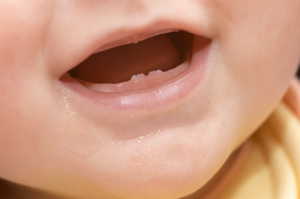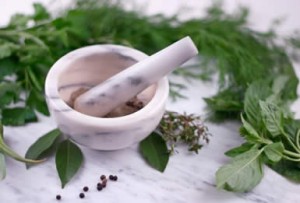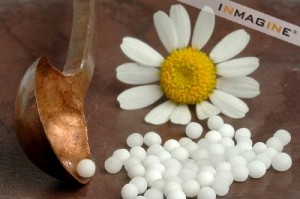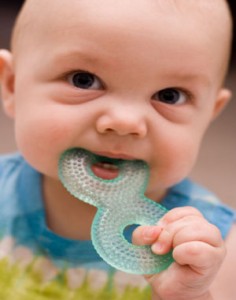Teething troubles is common in all babies. It is in very rare cases that a new born goes through this period without any problems. Your good-natured baby becomes restless and fretful all of a sudden, starts drooling and eagerly chewing or wanting to put his or her hand and fingers into the mouth. Worry not as these behavior changes may only indicate that your baby is having discomfort during the teething age.
What is teething in babies?
Teething is related to the age of the child and eruption of the primary teeth is a normal part of development that usually occurs uneventfully.
Why is there teething pain?
Teething pain is caused by the pressure of the teeth cutting through the gum surface. However the process is generally painless or may cause little soreness in the gums that might make your baby fussy.
When do babies start teething?
Teething age starts when the first baby tooth erupts, usually at about 6 months of age but it may vary from 3 to 12 months. In the vast majority of infants, the first tooth to appear is the lower center front teeth and by around 20 months, your baby may get some or all of the primary teeth.
What are the teething symptoms?
- Drooling
- Eager to chew objects or their fingers and hand
- Inflammation and tenderness of the gums at the site of tooth eruption
- Fussiness
- Sleeping problems
- Mild increase in body temperature (not more than 101°F in temperature)
Many parents believe that high-grade fever, diarrhea, ear pulling and other systemic illness are related to teething. However there is no evidence linking them together. A fever during this time should be considered a coincidence rather than related to it, and should be consulted with your doctor.
What is homeopathy?
Homeopathy is a form of alternative medicine in which highly diluted preparations are used to cause symptoms in a healthy person that are similar to those present in a patient. Homeopathic remedies are made from highly diluted plants, animal, mineral and synthetic substances and even poisons which are believed to trigger a person’s natural healing ability.
The basic principle of homeopathy is based on Hahnemann’s Law of Similars in which he believed that the effects of a substance on a healthy person could be identified by a system of proving and then used to treat the same symptoms in a sick person, or could be summed up as “let like be cured by likeâ€.
More information about homeopathy can be found at the following website: http://www.homeopathic.org/
How to treat teething symptoms with homeopathy
Teething is mostly treated with homeopathic Chamomilla. Chamomilla works well in a broad range of potencies, the most favored being 3x*, 6x or 6c. In small children, 3-5 tablets are dissolved in a teaspoon of water and the dosage is given very 2-3 hours as needed.
Belladonna is another remedy considered in teething. Belladonna should not be used below the 6x potency and that 30x potency works well. Administer as under Chamomilla.
ABC is a combination remedy that consists of Aconite, Belladonna and Chamomilla. ABC is the most often offered as a proprietary remedy by homeopathic drug manufacturers in the 6x or 3c potencies. The remedy is given similar to that of Chamomilla.
Other remedies include:
- calcium carbonate
- calcium phosphate
- kreosotum (beechwood creosote)
- phytolacca decandra (poke root)
- rhubarb
- silica (silicon dioxide)
It should be taken note that is lack of convincing scientific evidence to support homeopathy’s efficacy therefore homeopathic remedies should be taken with caution.
*x (10) and c (100) refer to the number of parts of water or alcohol that one part of the original substance, or mother tincture, is diluted in. The numbers refer to how many times a substance is diluted by a factor of 10 or 100 at each stage. For example, 3x is equivalent to 1:1000 dilution.
What are the other ways to ease teething pain?
You should try to be supportive and available when your baby is in pain. There are many home remedies for teething including:
- Massaging your child’s swollen gums with your finger for a minute or two.
- Allowing your baby to chew on damp washcloth or a clean, smooth, hard object like a chilled teething ring.
- Cooling your child’s gums with a small amount of crushed ice or a bottle containing cool water.
- Try not to give your baby teething biscuits which may contain lots of sugar.
Various sources on the Internet mention homeopathic teething tablets (containing belladonna, magnesium phosphate, coffee and chamomile), tea tree oil, anise seed, menthol, clove oil and others but it should be noted that these supposed teething remedies lack evidence of safety and some could be dangerous for the child. You should consult with your physician before administering anything to your child.




Please do some basic research:
“*x (10) and c (100) refer to the number of parts of water or alcohol that one part of the original substance, or mother tincture, is diluted in. The numbers refer to how many times each drop has been taken from one volume and added to another. For example, 3x is equivalent to 1/30 dilution.”
No – 3x means a dilution of 1 part in 10 that has been carried out three times. That turns into a dilution of 1 part in 1000. 30c means a dilution of 1 part in 1000000000000000000000000000000000000000000000000000000000000. That’s why there’s no active ingredient (not a single molecule) in most homeopathic “medicines”, and why they are ineffective, and why they have been proven (beyond all reasonable doubt) to be indistinguishable from placebo.
Also:
“It should be taken note that is lack of convincing scientific evidence to support homeopathy’s efficacy therefore homeopathic remedies should be taken with caution. If you were to use these remedies, it is best to consult a homeopath.”
is equivalent to saying “If you were thinking of buying some snake oil, it is best to consult a snake oil salesman”. That doesn’t sound very intelligent to me.
Thank you very much for your feedback. It was my mistake for not understanding the dilution conversation. The article has been edited to avoid further confusion.